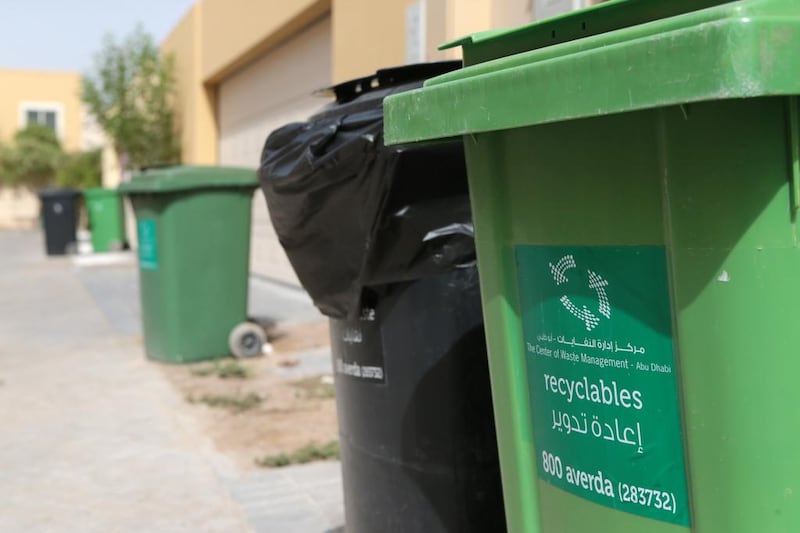ABU DHABI // Residents say that many people who want to recycle do not have a clear set of guidelines for doing so.
They said this was mainly because of a “pick and choose” approach by government agencies responsible for waste management.
Jonathan Cleworth, 28, a cost engineer who lives on Reem Island in Abu Dhabi, said that he was made aware of recycling only through luck.
“There were no notices put up when these bins arrived, so many people will not have known about them,” Mr Cleworth said.
“I only saw them because I walk past that way to get to our pool. So I think some education could make it easier.”
He now recycles diligently by separating his rubbish into boxes in his house then disposing of the waste in the appropriate recycling bins. It is a process, he said, that takes only five minutes once a week.
Despite the easiness of doing so, he said, the education was still not there and if he and his wife were not conscious of the benefits of recycling, they would not be concerned.
“My wife teaches young children at her school about recycling but I fear many still don’t understand the benefits of the practice.
“My only criticism is that I really don’t hear enough about the government encouraging recycling. I hear adverts on radio about saving water, about reducing electricity, turning off air con, etc, but not about recycling.
“I think more should be done to encourage people to recycle.”
Being an advocate for recycling, Mr Cleworth takes it upon himself to bring up the topics of responsible waste management in conversations with friends and colleagues to raise awareness and to gauge feedback for himself.
“I commonly talk to friends in my building and relatives who live near by about this,” he said.
Most of those he spoke to, he said, were “very sceptical about whether the recycled rubbish simply gets mixed in with normal household waste” and, as a result, chose not to recycle.
Peter Scarlet, who lives in Al Nahyan, said that the lack of education about recycling was the first step that needed to be addressed in trying to reform and improve recycling practices in his adopted home country.
“I have already expressed criticism about how ineffectual recycling appears to be here – how little educational information is distributed – and how the waste-collection policies appear to contradict what you were told by someone at the waste agency,” he said.
There appeared to be too many inconsistencies when going from one house, or one emirate, to the next, he said.
“What is supposed to go into the green bins? What is supposed to go into the black bins? What is the point of the distinction?” he said.
“These efforts demand more thoughtful planning and attention.
“Just putting up signs without thinking of where they should be and distributing waste containers in two different colours is a feeble effort.”
Sylvain Notinbed, who works for Abu Dhabi Tourism, said he tries to recycle as much as he can in his home in the Al Rayyana complex but when he moved into his apartment before that, there was no way to recycle.
The Frenchman said that it would take more than merely an understanding of recycling to make it commonplace, it needed to be woven into the fabric of everybody’s day-to-day life and to do that, education needed to start from an early age.
“The best way to get people on board is to teach recycling at schools and to make sure that the next generation is so aware of recycling that it becomes second nature to them,” he said.
nalwasmi@thenational.ae





